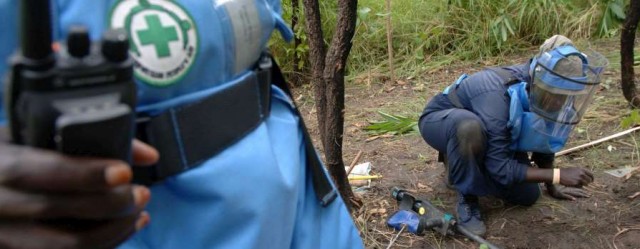Home > Partners > Non-Governmental Organizations > History of UNHCR-NGO Partnership
History of UNHCR-NGO Partnership

UNHCR and NGOs: A Long and Fruitful Partnership
UNHCR has been working with non-governmental organizations since it first began helping the forcibly displaced in the early 1950s, when about 100 national and international "voluntary societies" were assisting refugees from World War II in Europe.
In the early years, UNHCR's focus was primarily legal and not operational. It relied heavily for help and funding on governments and established NGOs like the Netherlands Committee to Aid Refugees, which raised US$1 million for the refugee agency's work in Europe.
UNHCR's first big emergency came during the Hungarian crisis of 1956, when tens of thousands of people fled the country to escape the Soviet Union's suppression of revolt. As the lead agency in the aid effort for refugees, UNHCR received important donations from NGOs in Europe.
As UNHCR's work and size grew to cope with emerging refugee crises in the 1960s, 1970s and 1980s, especially in Africa, Asia and Central America, so did its ties with a wide range of newly formed humanitarian and refugee-related NGOs.
Most of these partners were from North America and Europe, and their work complemented that of UNHCR. The agency now relied on NGOs for practical cooperation rather than funding. In the late 1980s, there were more than 100 international NGOs working alongside UNHCR in Pakistan's camps for Afghan refugees.
By the early 1990s, UNHCR recognized that the magnitude of global challenges exceeded its own capacity to respond. Given the growing needs of those of concern to UNHCR, who now included internally displaced people and returnees as well as refugees, the organization in 1994 launched the Partnership in Action initiative (PARinAC).
This established a framework for cooperation between UNHCR and the hundreds of NGOs around the world with whom it works. It was introduced to improve the working relationship between UNHCR and NGOs and to look at important issues of common concern. The PARinAC process introduced new structures and mechanisms for cooperation at the regional and national levels.
Today, UNHCR relies heavily on NGOs to implement a wide range of projects, including aid distribution, protection, logistics, shelter, health, water, sanitation, nutrition and education projects. Another feature of recent years has been the development of strong partnerships with more and more national NGOs.